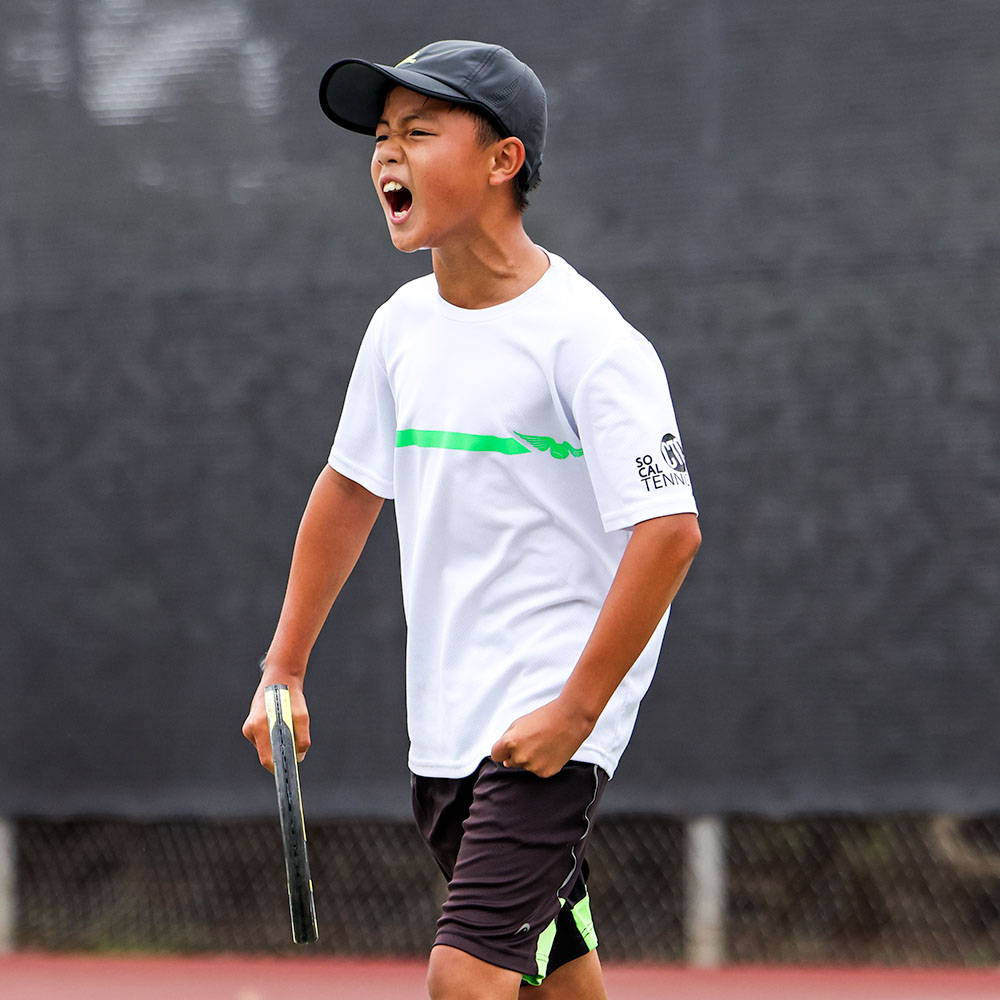YLC BLOG: NOURISHING THE FLAME FOR TENNIS
YOUTH LEADERSHIP COUNCIL | USTA SOUTHERN CALIFORNIA
OCTOBER 24, 2023 | DRAKE NGUYEN

YLC BLOG: NOURISHING THE FLAME FOR TENNIS
USTA SOUTHERN CALIFORNIA
OCTOBER 24, 2023
DRAKE NGUYEN

Competition was fierce at this year’s 12 & Under Kats Cup Intersectionals in Costa Mesa. (Photo – Jon Mulvey/USTA SoCal)
SHARE THIS STORY
Taking a loss can be hard, especially when a grueling, hard-fought split-set ends with an emotional ten-point tiebreaker. But what happens when that loss turns into two losses? Three? Maybe even ten consecutive defeats?
Believe it or not, nearly every athlete has experienced a dip in their game. If they haven’t, they eventually will. Losing is a fundamental part of sports. It’s the counterbalance to winning, to victory, to glory. Many athletes find losing to be disheartening. This may be true, but we must not forget one crucial aspect about losing: it’s an opportunity.
More specifically, losing opens an opportunity for us to learn. It allows athletes to reflect on their mistakes, analyze their opponent’s strengths, and craft a new game plan.
Even so, the next win might not arrive at the following tournament. Or the one after that. Or not until a few down the road. Losing may sting, and sting, and sting again, until it viciously pulls the athlete to the verge of quitting.
You see, there’s a difference between an athlete who loses, and an athlete who quits. It’s important to emphasize that neither path is a judgment on an athlete’s worth or dedication, but rather a reflection of their mental stance towards the game. A quitting athlete has completely shut their door, squandering their given opportunity. A losing athlete, on the other hand, still has their foot in the door. If this athlete maintains an open mind, continues diligently, and perhaps encounters a pinch of luck, they are well en route to victory.
With this mindset, players can construct mental resilience, forge unwavering perseverance, and cultivate a deeper, more potent passion for the sport. They might communicate more with their coaches about strengths and weaknesses, ask their parents to film their matches, watch YouTube tutorials, and seek more opportunities for practice matches.
In essence, this mindset of transforming losses into growth encourages players to be more proactive in their self-improvement. Over time, these athletes may see that they have become better problem-solvers, better strategists, and better competitors, making each of them a more complete player.
Next time you step onto the court, remember that losing varies from athlete to athlete; it’s a facet of the game that occurs at different times and different intensities. While it may not be easy for you to embrace your losses, acknowledging them as part of the process can be an essential step toward becoming a more mature, adaptive, and driven player on and off the court.

